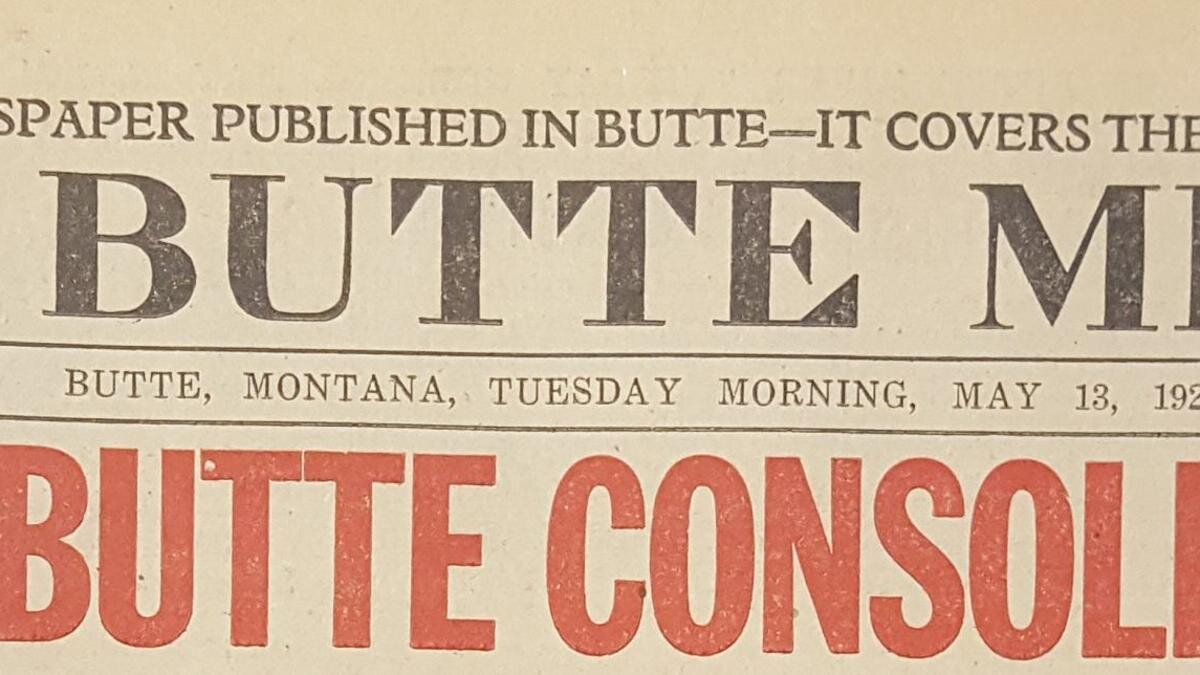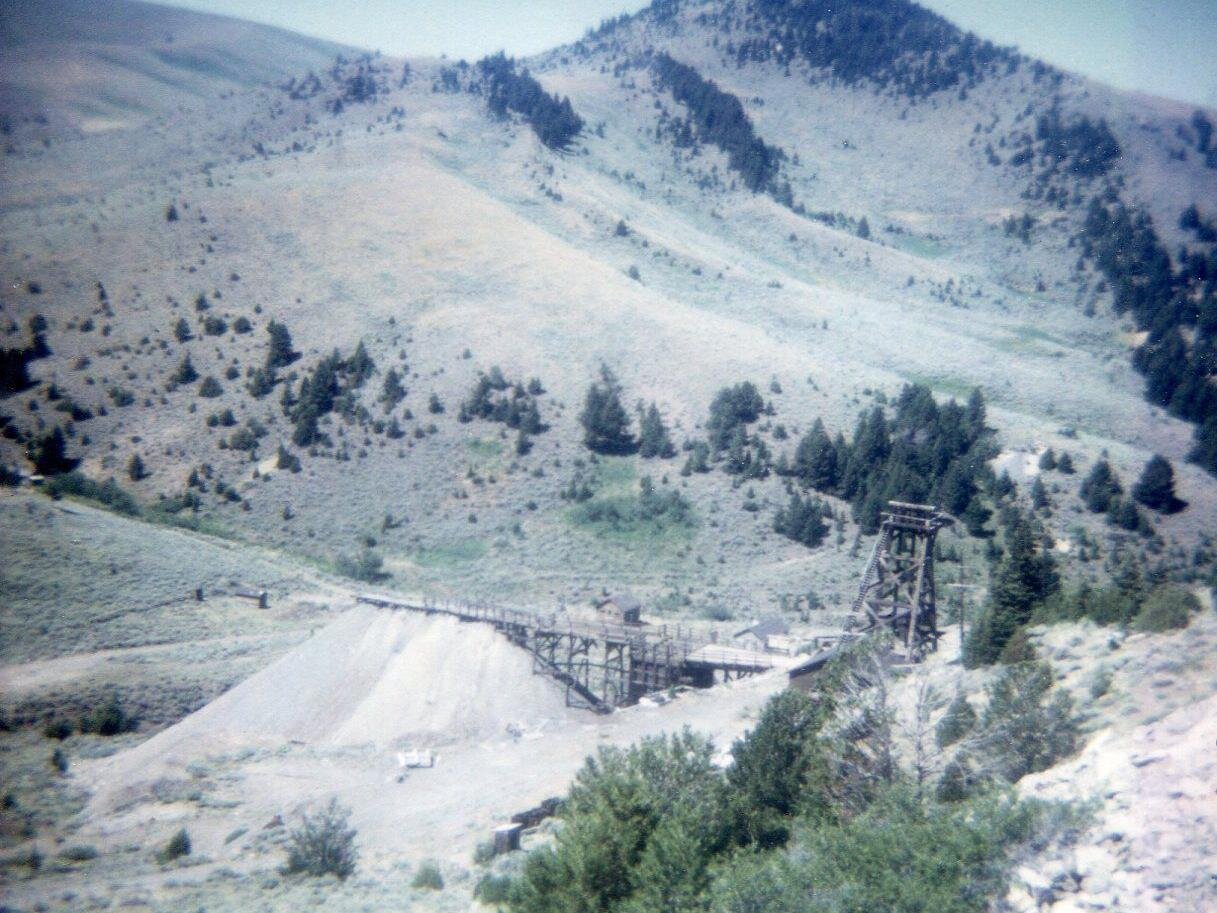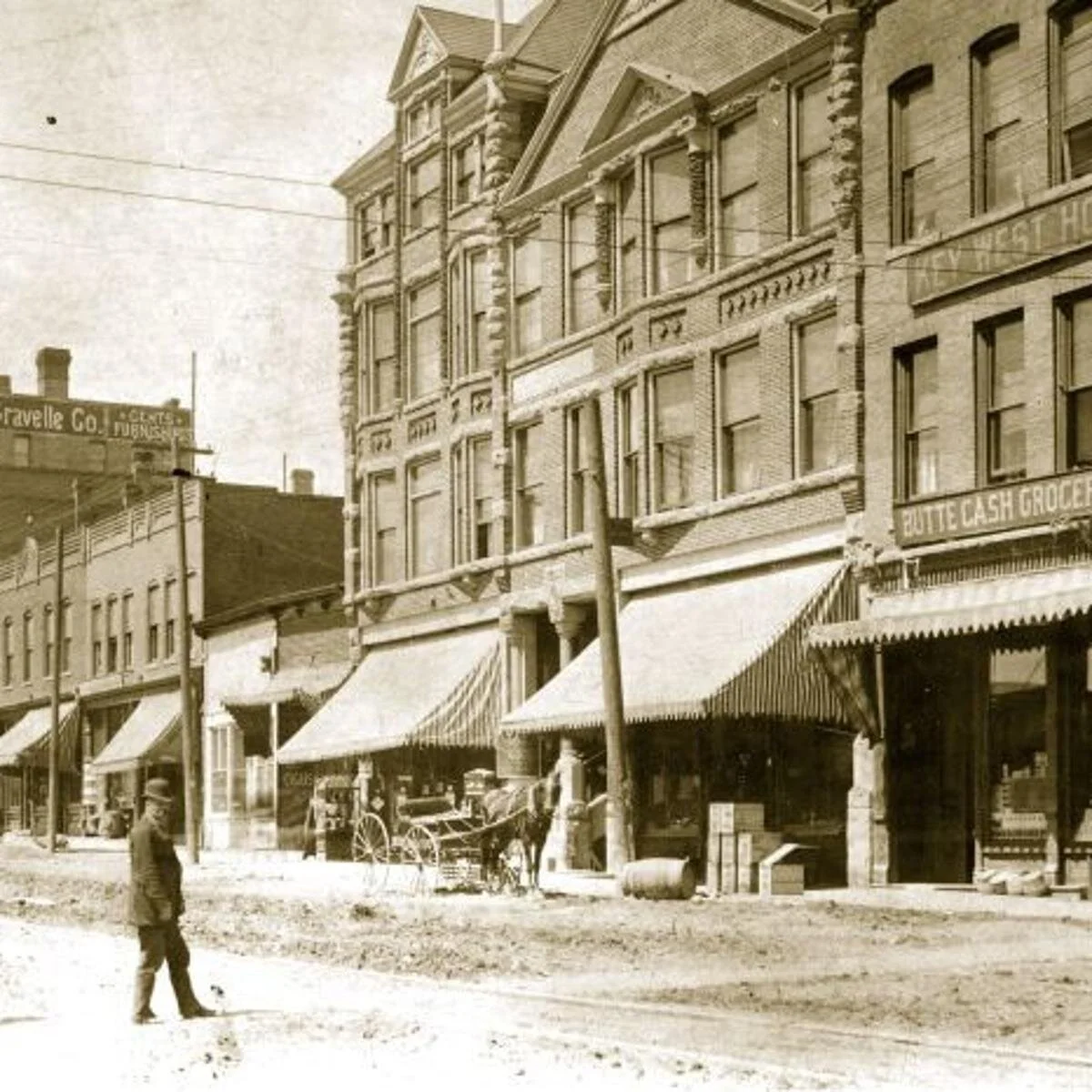
Butte, America’s Story Episode 180 - The Dexter Mill
The Dexter mill was completed under Clark and began to process ore in the summer of 1876. By October, twenty-eight men were employed, and it was “running along smoothly and continuously” processing nine tons of rock in 24 hours. One processing run of 105 tons yielded $40 in gold and $125 in silver per ton – more than $17,000 for about 12 days’ work.

Butte, America’s Story Episode 179 - The Bell Smelter
Between 1880 and 1886, at least seven processing plants operated in Butte, including concentrators and smelters. One of the earlier smelters was the Bell.

Butte, America’s Story Episode 178 - Bicycle Racing
In the 1890s, one of the many sports rages was bicycle racing. The first dirt tracks were unsatisfactory for both competitors and viewers, and in 1887 the first wooden board “saucer” was constructed in Omaha.

Butte, America’s Story Episode 176 - The Silver King Lode
In 2012 a hole opened up in the street maybe 40 feet from the northwest corner of my garage. It was only about a foot across, but the open drop into it was close to six feet deep. After numerous people came to look into it and paint variously colored marks on the pavement, a Butte-Silver Bow Public Works Department crew arrived to excavate the hole.

Butte, America’s Story Episode 175 - The WCTU
Butte may seem an unlikely place for the Women’s Christian Temperance Union, anti-alcohol in a town with hundreds of saloons. But the Montana chapter of the WCTU was organized in Butte in 1883.

Butte, America’s Story Episode 174 - Bogk’s Gardens
Before Columbia Gardens, before the Basin Creek park, there was Bogk’s. Gustavus Bogk’s City Park, also known as Bogk’s Gardens and later as Meaderville Gardens, was established about 1879 in the upper reaches of Silver Bow Creek, less than a mile upstream from the area that would become the community of Gunderson in 1883.

Butte, America’s Story Episode 173 - Henry Brundy
Although Thomas Lavell, who built his beautiful Second Empire home at 301 West Park Street, is usually credited with providing the lumber for the first buildings in Butte made with sawn wood, he has some competition for that claim.

Butte, America’s Story Episode 172 - BSB Consolidation
Everyone in Butte knows we have a unified city-county government, established when the two jurisdictions combined in 1977. But that wasn’t the first time a merger was attempted. Three previous pushes to combine the city and county, in 1924, 1931, and 1963, all failed.

Butte, America’s Story Episode 171 - Death By Lion
The gruesome news spread quickly around the world. Even the Taranaki (New Zealand) Herald carried the report of the lion that attacked trainer Walter Blanchard, better known as Zeke Walters, during the Lehman Brothers Circus parade in Butte Saturday October 1, 1898.

Butte, America’s Story Episode 170 - Iona Cafe
In 1909, baker Joseph W. Boulet established his bakery at 72 East Park, part of the Ivanhoe Block erected in 1905 and still standing. Boulet’s manager, Carroll Cornelius, lived upstairs in the Ivanhoe, and ran the Iona Café in the same building.

Butte, America’s Story Episode 169 - Mayflower Mine
Clark led the Mayflower Mining Company from 1896 to 1901, during which time production totaled about $1,250,000 worth of gold in 1900 dollars. The high-grade ore from the main mine averaged $150 per ton. The mine began from a 700-foot tunnel, with a 925-foot winze (a sub-vertical shaft) that found ore at several different elevations.

Butte, America’s Story Episode 168 - Dance Marathon
The Renshaw Hall – today’s Terminal Meat Market at Park and Dakota – is among the older buildings in Butte, constructed about 1882. The upper floor served as a dance hall, theater, meeting room for unions and city government committees (the first City Hall was next door), and it was also a venue for prize fights, but it’s probably most famous for hosting one of the first marathon dance contests in the United States.

Butte, America’s Story Episode 167 - Shabbishacks
In May 1928, the Butte Miner headlined “City Cleanup Stirs Demand for Removal of Eyesores—97 Buildings Condemned as Fire Hazards.” This was the start of the Shabbishacks campaign, probably Butte’s first concerted effort to remove urban blight.

Butte, America’s Story Episode 166 - Opera House Saga
Butte residents were shocked to read the announcement in late September 1896 that the Maguire Opera House was to be torn down. The 1,100-seat theater, the prime venue for entertainment in Butte, was only seven years old, a new building at 50 West Broadway that replaced the original opera house that burned in 1888.

Butte, America’s Story Episode 165 - The Florence Boarding House
The great-grandmother of all the boardinghouses was the Florence Hotel. Built in 1898 at the behest of and with financing by Amalgamated (Anaconda) Company officers, it replaced the Hale House, which burned down on March 21, 1898.

Butte, America’s Story Episode 164 - McDermott-Finlen
In September 1884, the city of Butte didn’t quite end eastward at the corner of Broadway and Wyoming Streets, but almost. Broadway did not extend past Arizona street, although there were various mines and mills out that way, and in the block where the Finlen stands today you’d find several single-story detached log cabins lined with cloth for insulation, together with a woodshed, and a hay barn.

Butte, America’s Story Episode 163 - East Park Street in 1894
Signage in old photos are a great resource for history in Butte, and a photo of East Park Street from 1894 provides a wealth of information. I’ll try to paint you a word picture based on that photo, looking west from near Wyoming Street. In the distance at Park and Main the Owsley Block was completed in 1891-92, and was known as the Medical Arts Building when it burned in 1973.

Butte, America’s Story Episode 162 - Greeley School
Greeley School was built along with many others in Butte as a response to the exploding population in the late 1890s. First through eighth grades were taught at Greeley in its early years. The staffs at Greeley in 1905 and 1910 reveal a diversity of origins, and residences scattered all over town.

Butte, America’s Story Episode 161 - Butte Hotel
The four-story Butte Hotel at 23-31 East Broadway (where a parking structure stands today) was erected in 1892-93, opening in August 1893. It contained 120 rooms, expensive at $3 to $5 per night when $1 a night was more typical. Street cars “pass the door every 10 minutes,” as their advertising boasted in 1895.